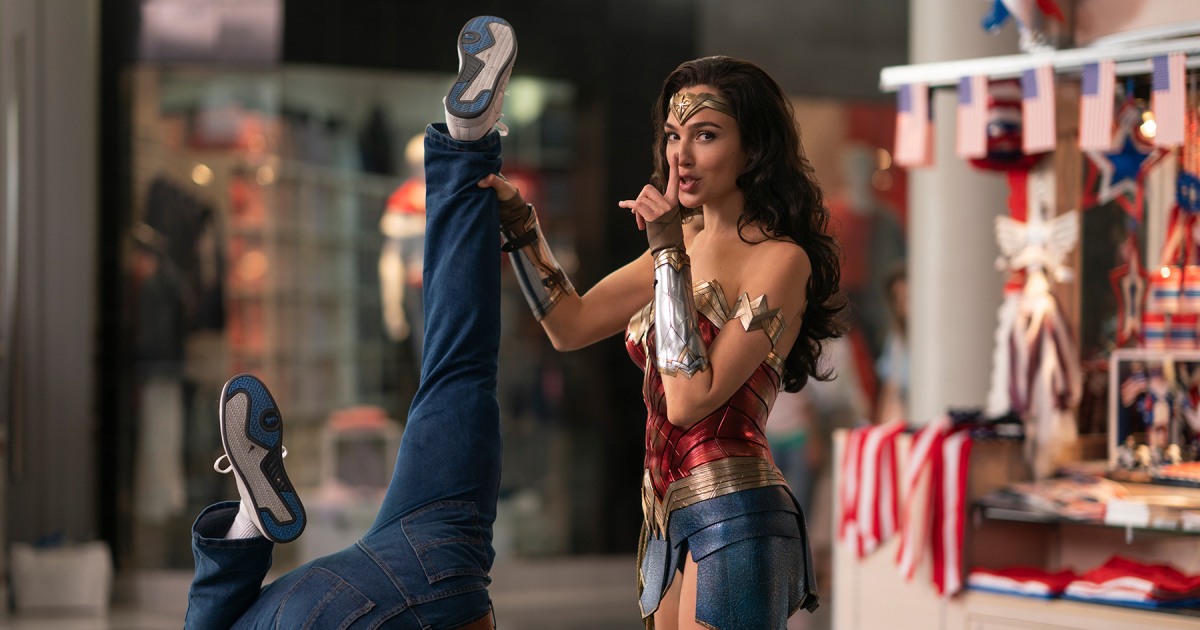
Some superheroes, like the titular heroine of “Wonder Woman: 1984,” are unapologetically styled on gods — and according to a popular school of thought, all superheroes, in one way or another, are our contemporary deities, as comics writer Grant Morrison declared in his book “Supergods.” Superman, for instance, is “a pop star, too, a machine-age messiah, a sci-fi redeemer,” according to Morrison: His popularity and that of his teammates, rivals and corporate opposite numbers are proof of an unmet longing to worship something.
If you read superhero comics today, you’ll find a lot of ink dedicated to the awe inspired by the versions of our best (and worst) selves in capes and costumes. But if you like to watch movies — or if you read nonsuperhero comics — you might be forgiven for regarding costumed do-gooders less as deities and more as corporate overmen forcibly changing the way we consume entertainment, whether we like it or not.
In 2008, two gigantic superhero movies opened: Christopher Nolan’s “The Dark Knight,” a surreal riff on the crime flicks of Michael Mann and Martin Scorsese featuring Batman, and “Iron Man,” a light action movie with a wonderful central performance by Robert Downey Jr. and few formal moviemaking innovations besides the post-credits scene at the end, which teased both a sequel and the possibility of an Avengers movie someday.
“The Dark Knight” is probably as good a politically engaged movie about Batman as possible, but in the intervening years, the companies that own nearly all remotely recognizable superheroes — even the word itself is a joint trademark held by Marvel, a subsidiary of Disney, and D.C. Comics, a subsidiary of AT&T — changed the rules of moviemaking in the wake of the remarkable success of these two films.
It’s not too different from the way comics changed in the 1950s.
Superhero movies seem to be a business strategy to reduce the prominence of every artist involved in the creation of a given piece of entertainment.
Superhero movies are not really a distinct genre of movies at all any more, but the dominant form of every big-budget movie. There are superhero teen comedies, superhero costume dramas and superhero spy thrillers, all starring our era’s most famous actors (with popular comedians and laureled Shakespearean actors stuffed into their corners to give them some atmosphere).
More than anything, this seems to be a business strategy to reduce the prominence of every artist involved in the creation of a given piece of entertainment, by focusing all entertainment pieces around a shareholders’ property — a corporate logo in the form of a little pseudo-god in tights. It's as if all romantic comedies suddenly had to be James Bond spin-offs, so that the studio could supposedly benefit from the association with one of their established brands and retain legal rights to the concept itself.
This strategy diminishes film itself. Year after year, Marvel and D.C. produce movies that feel like two-and-a-half-hour, billion-dollar-grossing installments of the what would have been 15-minute serials in the 1930s, with a rom-com or a third-rate World War II movie dropped in between main storyline cliffhangers to please people who are old enough to remember going to movies that began and ended and took time to flesh out the characters. Every now and then, against the odds, a filmmaker does something fascinating with this form — like Taika Waititi’s “Thor: Ragnarok” — but those are the exceptions, rather than the rule.
And, on some level, it’s hard to argue with success. The Marvel films are a vast Mandelbrot set of sequels: five movies starring various Avengers and an “Avengers” movie comprise “Phase One”; another set of six make up “Phase Two”; and a third set of 10 including a two-part finale — complete “The Infinity Saga.” Next year, a period spy thriller starring Scarlett Johansson as the Black Widow will kick off a new, presumably even vaster, saga.
So it’s not that superhero movies are somehow an invalid form of entertainment, but they have become a hugely different form than a mere film — and they've become that way because of business decisions by intellectual property holders, rather than directors or screenwriters or even the moviegoing public. Superhero movies are now about the sweep of years and decades in a way that even superhero comics, with their ageless heroes and heroines, can’t be — though producers seem worryingly pleased with the ghoulish habit of resurrecting dead performers using CGI and cut footage. D.C. and Marvel have huge back catalogs, and they seem happy to reboot their universes whenever it looks like a profitable option.
Widespread derision for “WW84” may result in a few hopeful pre-obituaries for this way of making movies, but critics were writing about the demise of the superhero film when “The Dark Knight” came out, too. More than anything, contemporary superhero media seems to obey one cardinal rule: Like gods, they’ll stay immortal until people stop believing in them. That’s the divine mystery of corporate entertainment.
"Movies" - Google News
December 31, 2020 at 05:57AM
https://ift.tt/3aUzlAM
Movies like 'Wonder Woman 1984' get made because studios own all rights — and the profits - NBC News
"Movies" - Google News
https://ift.tt/2xuBIZW
Bagikan Berita Ini














0 Response to "Movies like 'Wonder Woman 1984' get made because studios own all rights — and the profits - NBC News"
Post a Comment